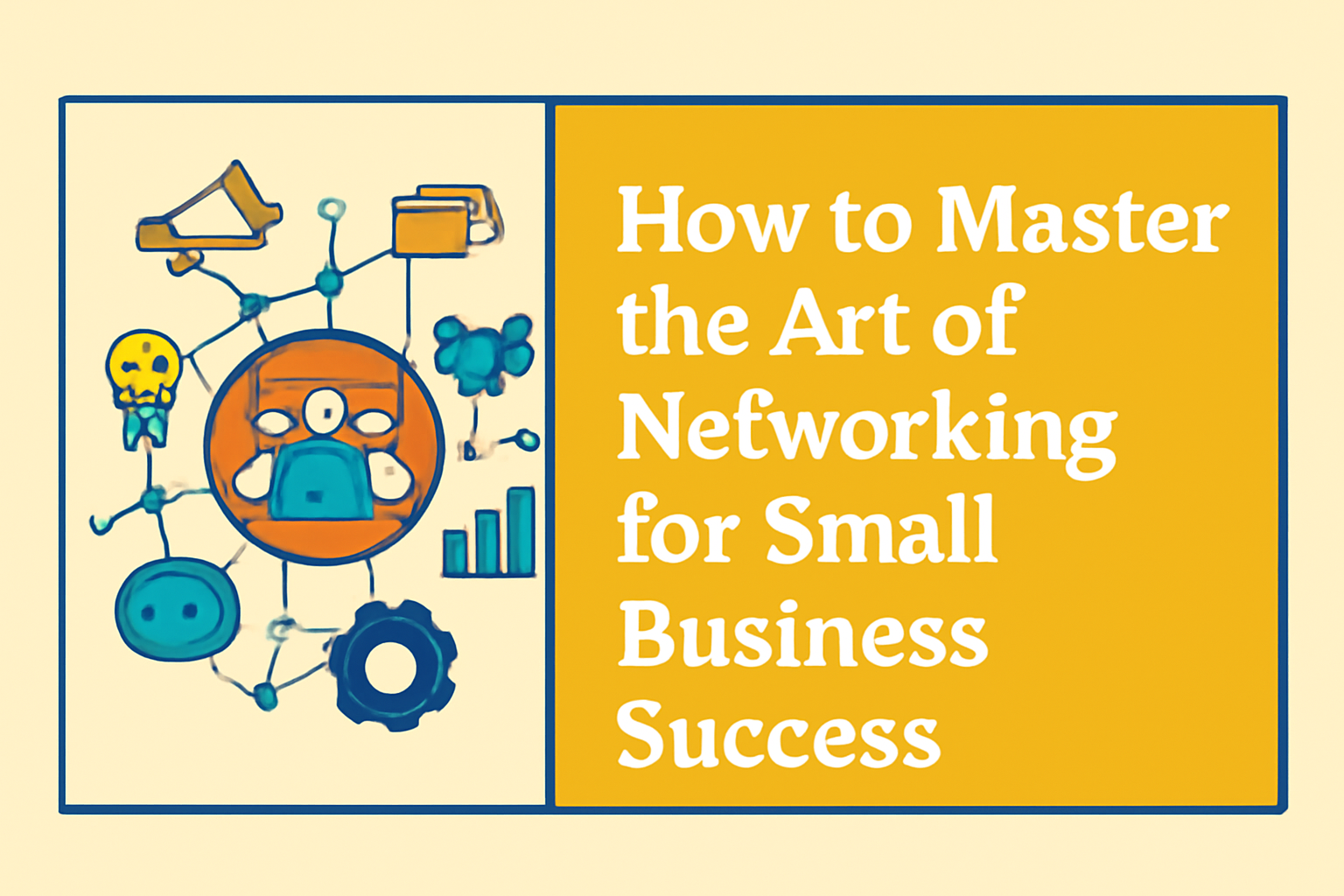Networking is one of the most valuable skills for small business owners. Whether you’re connecting with potential clients, partners, or industry professionals, building and nurturing relationships can help drive your business to new heights. In this article, we’ll explore effective strategies for mastering the art of networking and how it can contribute to your business success.
1. Know Your Goals and Objectives
Before you start networking, it’s important to have a clear understanding of your goals. Ask yourself:
- What do I want to achieve through networking?
- Am I looking for new clients, business partners, or advice?
- What specific industries or professionals do I need to connect with?
Having these goals in mind will guide your networking efforts, ensuring that you are intentional and focused.
2. Attend Networking Events
Networking events, whether virtual or in-person, are a great opportunity to meet people in your industry. You can attend conferences, seminars, trade shows, or local business meetups. Look for events where your target audience or potential collaborators are likely to be. If attending physical events isn’t possible, there are plenty of online networking events and webinars to explore.
3. Leverage Social Media
Social media platforms like LinkedIn, Facebook, Twitter, and Instagram offer an excellent space for networking.
- LinkedIn is particularly useful for professional networking, allowing you to connect with individuals in your industry, share valuable content, and join relevant groups.
- Facebook and Instagram can help you build your brand presence and engage with customers on a personal level.
- Twitter is ideal for joining conversations and keeping up with industry trends.
Actively engage by commenting, sharing valuable content, and reaching out to others in a genuine, non-salesy way.
4. Focus on Building Relationships, Not Just Making Sales
When networking, it’s easy to get caught up in trying to make a sale or land a new client. However, effective networking is about building meaningful relationships.
- Listen more than you talk: Understand the other person’s needs and challenges, and offer help if possible.
- Be genuine: People appreciate authenticity and are more likely to remember you if you show genuine interest in them.
Remember, networking is about creating long-term relationships, not just immediate transactions.
5. Follow Up After Meetings
After meeting someone, be sure to follow up with a quick message or email.
- Express your appreciation for their time.
- Mention something specific from your conversation to make your follow-up more personal.
- Offer to stay in touch or collaborate in the future.
A simple follow-up can help solidify the connection and keep the conversation going.
6. Offer Value to Others
Networking isn’t just about what you can get, but what you can give. Offering value to others in your network can help you stand out.
- Share useful resources, articles, or tools that could benefit them.
- Make introductions between people who might find each other useful.
- Provide advice or insights when appropriate.
By offering value, you’ll create a reputation as a helpful and generous person, which will ultimately attract more connections.
7. Build Your Personal Brand
A strong personal brand helps you stand out in a crowded networking environment. It’s not just about your business; it’s about who you are and what you stand for.
- Ensure that your social media profiles, website, and business materials reflect your values and professionalism.
- Share your expertise through content, such as blogs, podcasts, or videos, to position yourself as a thought leader in your industry.
A well-defined personal brand will make people more likely to trust you and want to network with you.
8. Be Patient and Persistent
Building a strong network takes time. Don’t expect instant results or success from every interaction. Networking is a long-term effort that requires patience and consistency. Keep engaging with your network, following up, and offering value, and over time, you’ll see the fruits of your labor.
9. Get Involved in Local Communities
In addition to virtual networking, getting involved in local communities can help you build strong, personal relationships.
- Join local business groups, volunteer for community events, or attend social gatherings.
- Being active in your community helps you build a network of people who can refer business to you or collaborate on local projects.
10. Use Networking to Build Partnerships
Effective networking is not just about finding customers, but also forming partnerships that can benefit both businesses.
- Look for businesses that complement your own and explore opportunities for joint ventures, collaborations, or cross-promotions.
- Networking with other business owners can also lead to valuable partnerships and shared resources, which can reduce costs and expand your reach.
Conclusion
Mastering the art of networking is an ongoing process that can provide significant benefits for your small business. By attending events, leveraging social media, offering value, and focusing on relationship-building, you can create a network that supports your business goals. Remember that networking is not just about the immediate sale but about fostering long-term relationships that can help your business thrive.
